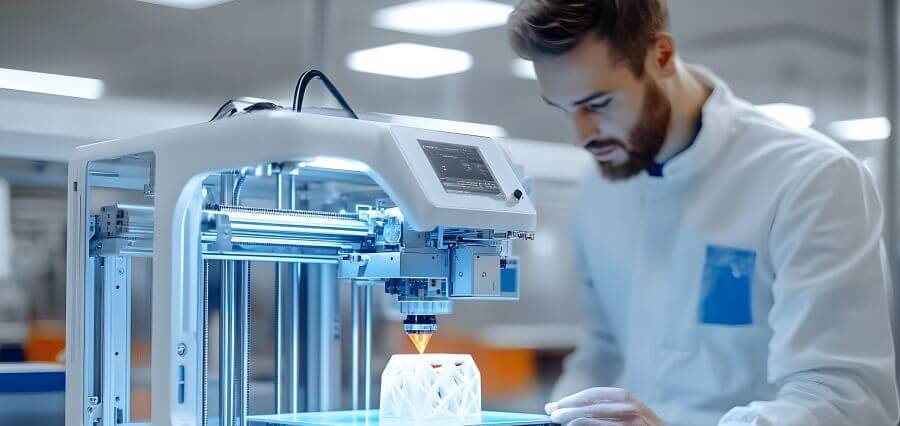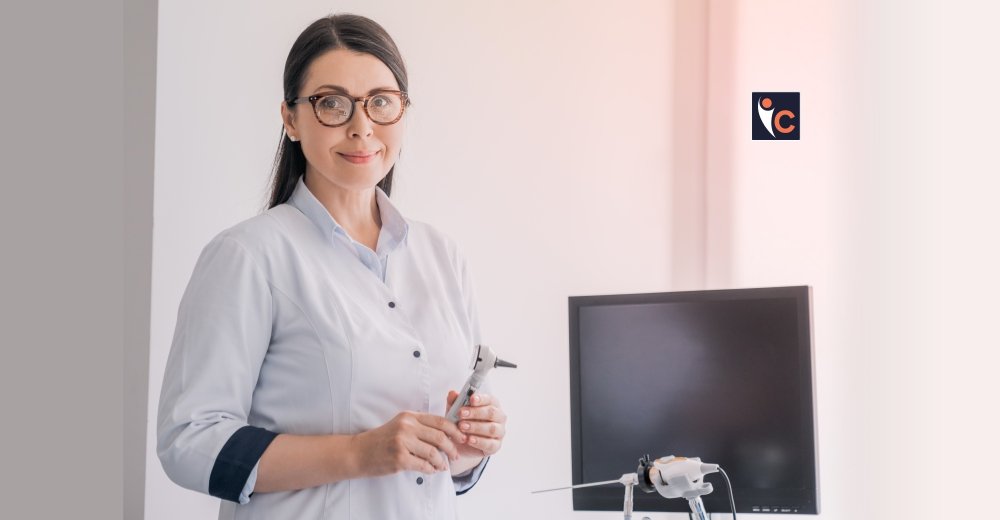AI technology creates major changes across industries with its use in healthcare but the use of AI in medical devices brings the biggest value addition. AI medical device technology improves treatment plans and results to deliver better patient healthcare. From diagnosis to surgery, rehab to chronic disease management, AI in medical devices is transforming the face of medicine.
This article discusses the tremendous influence of AI in healthcare devices and how it is revolutionizing innovation in modern cures.
AI-Powered Diagnostics: Accuracy at Unprecedented Scale
Perhaps the greatest impact of AI in medical devices is that it can improve diagnostic accuracy. Current diagnostic processes typically involve human interpretation, which, though experienced, is prone to error or miss something. AI can, though, examine vast amounts of data—medical images, patient history, and genetic data—faster and with greater accuracy than a human can.
In addition to imaging, wearable technology with AI built in is enabling patients and physicians. Smartwatches and fitness trackers track heart rates, blood oxygenation, and even forecast possible cardiac incidents by examining real-time patterns. These devices warn users and healthcare professionals of anomalies, allowing preventative treatment that can be lifesaving.
Revolutionizing Surgical Precision
AI improves how surgical instruments work during operations to enhance healthcare results. The da Vinci Surgical System helps surgeons during operations by adding AI functions which show surgical progress and provide improved control and sight for the operating tools. These platforms use patient details and operation history to show optimal incision areas plus foresee complications during surgery and modify treatment as needed.
Personalized Medicine by AI Devices
Medical devices using AI technology are making patient-specific treatment possible within today’s healthcare field. The devices for diabetic care such as insulin pumps and continuous glucose monitors show advanced benefits. Artificial intelligence devices study an individual patient’s body functions to provide precise insulin delivery during the moment. Patients no longer need to determine doses manually because this system controls glucose levels better.
AI technology makes rehabilitation equipment easier to use with prosthetics and exoskeletons improved for patients. Modern prosthetic technology uses machine learning to match the patients natural movements which improves effectiveness and comfort during use. Physiotherapists use exoskeletons to track muscle signals and provide exactly what harmed stroke or spinal injury patients need to heal. The devices personalize patient care to help patients regain their quality of life faster.
Chronic Disease Management and Predictive Care
The healthcare industry now uses AI to understand and read continuous patient information which improves chronic disease treatment methods. Asthma patients with smart inhalers allow doctors and patients to monitor their usage habits and environmental factors to correct treatment plans right away. These AI systems use cardiac monitoring to detect and extract heart rhythm patterns in order to stop cardiac arrhythmias from starting.
Challenges and Ethical Considerations
While the use of AI in medical devices offers good possibilities it creates specific problems. Many medical devices handle private health information that needs further protection. The healthcare quality depends on acting against threats to patient data and following necessary laws like HIPAA. The medical industry should focus on fixing AI systems that perform poorly for some patients because of limited training data to offer fair healthcare.
Our fear of responsibility increases when artificial intelligence is employed in healthcare systems. When AI medical devices produce errors or incorrect diagnoses which party should bear responsibility for these mistakes between the producer the healthcare expert or AI system. The FDA and similar agencies work to build safe standards for AI medical devices while permitting new technology-based advancements.
The Future of AI in Medical Devices
AI medical device technology can expand without limits in its future development. New text handling systems enable medical devices to talk to patients directly for real-time healthcare support. Integration with genomics may result in devices that forecast disease risk from DNA, directing preventative interventions years before. In addition, as AI becomes more mainstream, its application in low-resource environments may democratize high-quality care worldwide.
Conclusion
The current use of medical device AI technology creates major benefits across all areas of treatment practices. The integration of artificial intelligence into medical services now helps patients by making healthcare delivery better and ultimately new. The new medical era through AI technology helps doctors treat patients smarter and more effectively than ever while creating solutions that meet individual patient needs. Human health will attain new boundaries through ongoing AI advancements which enable us to address what was before unattainable.





